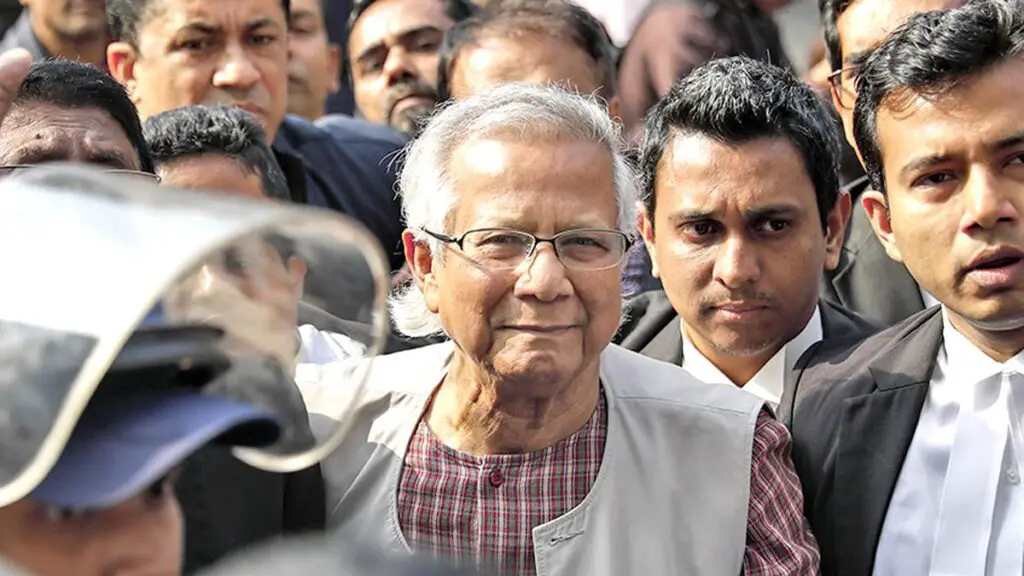Nobel Laureate Muhammad Yunus Convicted by Dhaka Labour Court
Amnesty International Denounces Conviction
Amnesty International has strongly condemned the conviction of Nobel laureate economist Muhammad Yunus by a labour court in Dhaka, Bangladesh, as emblematic of the grave state of human rights in the country. The 83-year-old economist was sentenced to six months in jail for violating labour laws, a move deemed politically motivated by his supporters ahead of the January 7 general elections.
Charges and Trial Progress
Yunus and three colleagues from Grameen Telecom, a company he co-founded, were accused of violating labour laws by failing to create a workers’ welfare fund. Amnesty International’s South Asia regional office highlighted the alarming speed at which the trial against Yunus was completed, contrasting it with the slow progress in other labour rights-related court cases in the country.
Amnesty International’s Statement on Human Rights Violations
Amnesty International’s South Asia regional office posted on social media, stating that “the conviction of Yunus is emblematic of the beleaguered state of human rights in Bangladesh, where the authorities have eroded freedoms and bulldozed critics into submission.” The organization emphasized that the misuse of the justice system to settle political vendettas is a violation of international human rights law.
Nobel Peace Prize Recognition
Yunus, who won the Nobel Peace Prize in 2006 for his anti-poverty campaign and the establishment of Grameen Bank in 1983, has been a prominent figure in Bangladesh’s economic and social development.
Details of the Court Order
The Dhaka Third Labour Court ordered Yunus and his colleagues to serve six months of non-rigorous imprisonment and imposed a fine of Taka 25,000 on each of them for the labour law violation. Despite these legal actions, many of Yunus’s supporters have deemed them politically motivated and retaliatory.
Political Dispute and Allegations
Yunus has been embroiled in a long-standing dispute with the government, leading to numerous investigations and charges against him. The government, led by Prime Minister Sheikh Hasina, launched these investigations after coming to power in 2008. The Nobel laureate’s announcement of a potential political party in 2007 during a period of military-backed governance garnered significant attention, and many speculate that this may have contributed to the government’s subsequent actions against him.
Conclusion
Muhammad Yunus, a revered figure in Bangladesh and globally recognized for his efforts to alleviate poverty, is now facing legal challenges and criticism from the government. The gravity of these allegations and their implications for human rights in Bangladesh continue to be a point of concern for international organizations and supporters of Yunus alike.
Related Links
For more information on Amnesty International’s work, visit Amnesty International. To learn about the Grameen Bank, the microcredit institution founded by Muhammad Yunus, visit Grameen Bank.

